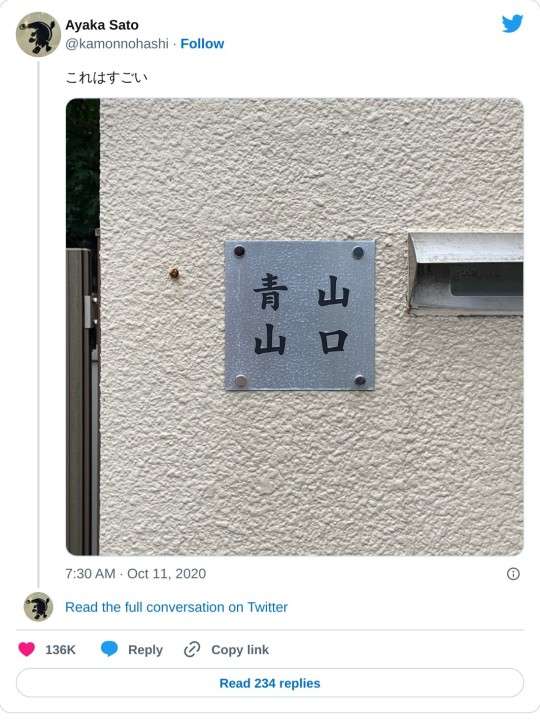Text
Jeg snakket med en psykolog på telefon i morges. Han sa at min situasjon er veldig vanlig blant folk som har angst. Det var så lettende å høre! Jeg skal møte ham 10. mai, og jeg gleder meg til det. Det føles flott å gjøre noe med min angst (endelig!).
5 notes
·
View notes
Text

Faktisk implies that the listener is assumed to be unaware of the information they are being told, and that this information might be a little surprising.
Jeg har faktisk eksamen i økonomi. I have a degree in economics, actually.
Jeg kommer faktisk fra Australia. I'm actually from Australia.
Egentlig means originally, initially:
Jeg har egentlig eksamen i økonomi. Well, my main degree is in fact in economics.
Egentlig kommer jeg fra Australia. I come from Australia originally.
Nemlig emphasizes that that sentence is an explanation of something that has happened earlier:
Jeg skal søke på den jobben - jeg har nemlig eksamen i økonomi. I am going to apply for that job, seeing as I have a degree in economics.
Det er dyrt for meg å reise hjem. Jeg kommer nemlig fra Australia. It's expensive for me to go home, since I come from Australia.
From Exploring Norwegian Grammar by Kirsti Mac Donald and Marianne MacDonald
44 notes
·
View notes
Text
So I haven’t been posting much lately because I’ve been super distracted by honestly crippling health anxiety. Heart rate has been constantly up high, obsessively checking my pulse, hardly sleeping, just becoming frustrated and depressed over it.
Today I went to the cardiologist and my EKG and ultrasound were all completely normal! Even my blood pressure was normal, and usually that goes up when I’m having it taken bc I’m nervous, so I was super relieved. My heart rate is still up kinda high, but now I know there’s nothing physically wrong with me, so I can start facing my anxiety head on and learning to cope with it. It’s incredible how much your mind can mess with your organs. But I feel more up to the challenge now.
5 notes
·
View notes
Text
does anyone know any website or what to have an overview of the Japanese grammar points divided into topics like “asking questions”, “expressing doubt” and then all the grammar points at different levels for that function?
143 notes
·
View notes
Text
getting chastised by my school’s health services for taking too long to submit updated health forms when it literally takes months to even get to SEE my doctor really stings lmao. i also literally had to call you to find out what was missing because your website is ass and gave me errors instead of a list of required forms. but okay.
#‘we asked on this date’ yeah ok but my dr was booked out for like 6 months#what do you want me to do about that#now they probably think i’m lazy or a nuisance idek#gonna feel ashamed about this for weeks probably#i love college!!!!!!!!!!!
2 notes
·
View notes
Text
College keeps sending me emails claiming I didn’t submit all my required immunization records when I most definitely did, but when I try to view the page that will tell me what I’m “missing,” I get an error on both mobile and desktop

#i’ll just resubmit the entire immunization record i guess because they won’t tell me what’s missing#would it be so hard to have a functioning website#i know i’m not super active here lately and mostly complain about college i’m sorry lol#but GAH i’m so sick of college nonsense
4 notes
·
View notes
Text
Glasses wearers blinded by the lust for soup (steam)
61K notes
·
View notes
Text
I’ve been dissecting Mark Danielewski’s House of Leaves for one of my classes for the past like, month or so. I’m leading our class discussion for a good chunk of the book on the 16th and I feel like I’m going a bit insane. Not necessarily in a bad way, though.
#probably the strangest thing i’ve ever read#but such a good exercise in close reading#i get a bit lost in it#reminds me of the goncharov trend/meme thing that was going around tumblr recently
2 notes
·
View notes
Text
#no organization 😰#i put things where they fit#keep series together but otherwise it’s a free for all#when i get my own place and have a bit more room i’ll probably organize by genre and alphabetical order tho#shelves dedicated to manga versus shelves with novels
19K notes
·
View notes
Photo




Ivan Shishkin | Noon in the Neighbourhood of Moscow, 1869 | Little House in Dusseldorf, 1856 | The chapel in forest, 1893 | Edge of the Forest, 1879 |
1K notes
·
View notes
Note
what do you do on bad writing days? I've felt like shit all of today because I haven't written anything worthwhile today. and it's making me not want to write again because I just feel like I'll never write like my favorite authors
You write anyway, even if it's crap. Because tomorrow you can look at what you did today and delete anything that didn't work, and save the diamonds on the dung-heap and move forwards -- or perhaps discover that it wasn't anywhere near as bad as you remember.
2K notes
·
View notes
Text
れる・られる Intro to Passive Verb Form
Disclaimer: This is N4 grammar. If you don't know the difference between ru (ichidan) verbs and u (godan) verbs, this post will be too difficult for you! You can read this article first.
If you need help reading kanji, I suggest downloading Yomichan. It helps you decipher texts quickly and easily that would otherwise be too difficult. More info on that here.
So without further ado, let's get into it!
Let's start with Tofugu's description: "The passive suffix 〜られる tells us that a verb is done to someone. It takes the emphasis off of who does the action, and places it on who is affected by the action." (But beware - The Japanese passive is not exactly the same as the English passive. More on that later.)
How to conjugate verbs to passive form:
-iru/-eru-verbs: Replace the last 「る」 with 「られる」
Examples
To eat: 食べる+られる = 食べられるto be eaten
To leave: 出る+られる = 出られる to be left
To close: 閉じる → 閉じられる to be closed
To see: みる → みられる to be seen
u-verbs: Change the last character as you would for negative verbs but attach 「れる」 instead of 「ない」
Examples
To drink: 飲む+ま+れる = 飲まれる to be drunken
To wait: 待つ+た+れる = 持たれる to be waited for
To buy: 買う+わ+れる = 買われる to be bought
To meet: 会う → 会われる to be met
To duplicate: 写す → 写される to be duplicated
To divide: 割る → 割られる to be divided
To write: 書く → 書かれる to be written
To learn: 学ぶ → 学ばれる to be learned
Irregular:
To come くる → こられる to have someone come
To do する → される to be done
Conjugating れる・られる
れる・られる is an auxiliary verb (cannot be used by itself, must be attached to other verbs), treated as an ichidan verb. Even if a godan verb is in passive form, 〜れる takes the conjugation.
Polite form
〜れる → 〜れます
To get pierced 刺(さ)される → 刺されます
Plain negative
〜れない
To not get pierced 刺されない
Plain past
〜れた
Was pierced 刺された
Plain past negative
〜れなかった
Was not pierced 刺されなかった
Forming a Passive Sentence
There are three main parts to a Japanese passive sentence:
An action: the verb of the sentence.
A doer: the person (or thing) that the action is done by.
An experiencer: the person who the action is done to.
Xは Yに 〜られる。
Typical passive sentence: は (or が, or を) indicates the receiver of the action, に (or による) indicates the doer of the action, and then you use the passive verb suffix.
Examples:
私のアイスクリームを兄に食べられた。My ice cream was eaten by my brother. (This sentence instead uses を to mark ice cream as the direct object. In this case the same particle would be used even if the verb wasn’t in potential form → 私のアイスクリームを兄に食べました。→ My brother ate my ice cream.)
新聞がジョンに読まれた。 The newspaper was read by John
私は部屋を綺麗にして、褒められた。I was praised for cleaning my room. (This sentence does not indicate the doer - as in who was doing the praising - hence there being no green).
変な話を親に聞かれた。My strange conversation was overheard by my parents.
私の牛乳を全部誰かに飲まれた。Someone drank all of my milk.
Remember, oftentimes unnecessary elements are omitted. Therefore, the experiencer may be dropped from the sentence (especially when the experiencer is you or their identity is obvious from context). And, just like in english, the doer may also get omitted.
68 notes
·
View notes




